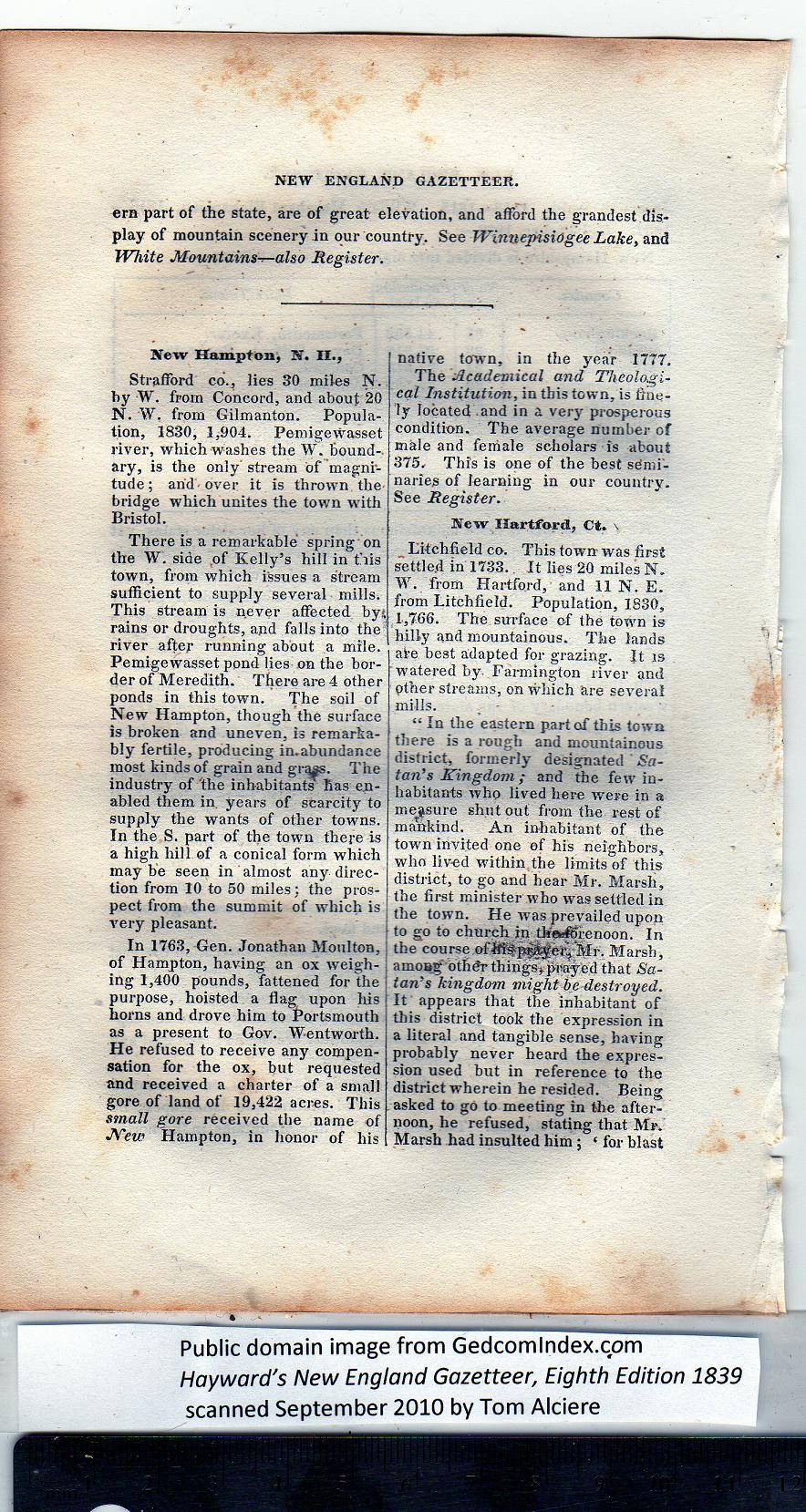|
New Hampton, N. II.,
Strafford co., lies 30 miles N.
hy W. from Concord, and about 20
N. W. from Gilmanton. Popula-
tion, 1830, 1,904. Pemigewasset
river, which washes the W. bound-
ary, is the only stream of magni-
tude ; and over it is thrown the
bridge which unites the town with
Bristol.
There is a remarkable spring-on
the W. side of Kelly’s hill in this
town, from which issues a stream
sufficient to supply several mills.
This stream is never affected byt
rains or droughts, and falls into the
river after running about a mile.
Pemigewasset pond lies on the bor-
der of Meredith. There are 4 other
ponds in this town. The soil of
New Hampton, though the surface
is broken and uneven, is remarka-
bly fertile, producing in.abundanee
most kinds of grain and gr^fs. The
industry of the inhabitants has en-
abled them in years of scarcity to
supply the wants of other towns.
In the S. part of the town there is
a high hill of a conical form which
maybe seen in almost any direc-
tion from 10 to 50 miles; the pros-
pect from the summit of which is
very pleasant.
In 1763, Gen. Jonathan Moulton,
of Hampton, having an ox weigh-
ing 1,400 pounds, fattened for the
purpose, hoisted a flag upon his
horns and drove him to Portsmouth
as a present to Gov. Wentworth.
He refused to receive any compen-
sation for the ox, blit requested
and received a charter of a small
gore of land of 19,422 acres. This
small gore received the name of
New Hampton, in honor of his |
native town, in the year 1777.
The Academical and Theologi-
cal Institution, in this town, is fine-
ly located and in a very prosperous
condition. The average number of
male and female scholars Is about
375, This is one of the best semi-
naries of learning in our country.
See Register.
New Hartford, Ct. \
^ Litchfield co. This town- was first
settled in 1733.. It lies 20 miles N.
W. from Hartford, and 11 N. E.
from Litchfield. Population, 1830,
1,766. The surface of the town is
hilly and mountainous. The lands
ai-e best adapted for grazing. It is
watered by. Farmington river and
pther streams, on which are several
mills.
“ In the eastern part of this town
there Is a rough and mountainous
district, formerly designated Sa-
tan's Kingdom / and the few in-
habitants who lived here were in a
measure shut out from the rest of
mankind. An inhabitant of tbe
town invited one of his neighbors,
who lived within the limits of this
district, to go and hear Mr. Marsh,
the first minister who was settled in
the town. He was prevailed upon
to go to church in lb'e*£irenoon. In
the course oflf^p^eiyMr. Marsh,
among'othtfrthings*.jhsay'ed that Sa-
tan's kingdom might be destroyed.
It appears that the inhabitant of
this district took the expression in
a literal and tangible sense, having
probably never heard the expres-
sion used but in reference to the
district wherein he resided. Being
asked to go to meeting in the after-
noon, he refused, stating that Mr.
Marsh had insulted him ; ‘ for blast |
